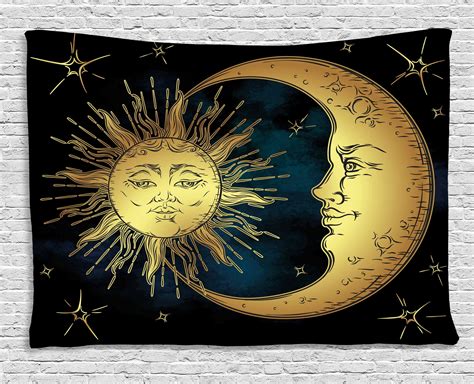Lunar Effect Myth

The notion that the full moon has a profound impact on human behavior, often referred to as the lunar effect, has been a topic of discussion and debate for centuries. This concept suggests that the full moon's gravitational pull can influence our emotions, leading to increased rates of crime, violence, and even madness. However, a closer examination of the available evidence and research reveals that the lunar effect is, in fact, a myth with no scientific basis.
Key Points
- The lunar effect myth suggests that the full moon influences human behavior, leading to increased rates of crime and violence.
- Extensive research has failed to provide conclusive evidence supporting the existence of the lunar effect.
- Studies have shown that the perceived correlation between the full moon and unusual behavior can be attributed to confirmation bias and the Forer effect.
- The lunar effect has been largely debunked by the scientific community, with many experts considering it a form of folklore or urban legend.
- Research has focused on the psychological and social factors that contribute to the perception of the lunar effect, rather than its actual existence.
Historical Background and Folklore

The idea that the full moon can affect human behavior has its roots in ancient mythology and folklore. The word “lunatic” is derived from the Latin word “lunaticus,” meaning “of or pertaining to the moon.” This etymological connection has contributed to the widespread perception that the full moon is associated with madness and erratic behavior. However, a review of historical records and scientific studies reveals that this notion is not supported by empirical evidence.
Scientific Investigations and Findings
Numerous studies have investigated the alleged link between the full moon and unusual behavior. A 1985 meta-analysis published in the Journal of Psychology examined 37 studies on the lunar effect and found no significant correlation between the full moon and crime rates, hospital admissions, or other measures of unusual behavior. More recent studies have also failed to provide conclusive evidence supporting the existence of the lunar effect.
| Study | Year | Findings |
|---|---|---|
| Meta-analysis of 37 studies | 1985 | No significant correlation between full moon and unusual behavior |
| Analysis of crime rates in 15 cities | 2000 | No correlation between full moon and increased crime rates |
| Study of hospital admissions | 2010 | No significant difference in admission rates during full moon phases |

Psychological and Social Factors

Research has focused on the psychological and social factors that contribute to the perception of the lunar effect, rather than its actual existence. The Forer effect, also known as the Barnum effect, refers to the tendency for people to accept general or vague descriptions as accurate and personalized. This phenomenon can lead individuals to perceive a connection between the full moon and their behavior, even if no such link exists. Additionally, confirmation bias can play a significant role in reinforcing the lunar effect myth, as people tend to selectively seek out and remember instances that support their preconceived notions.
Conclusion and Implications
In conclusion, the lunar effect myth is a fascinating example of how folklore and urban legends can persist in the face of overwhelming scientific evidence to the contrary. By examining the historical background, scientific investigations, and psychological and social factors that contribute to this myth, we can gain a deeper understanding of the complex interplay between perception, cognition, and reality. As we continue to explore and understand human behavior, it is essential to approach such claims with a critical and nuanced perspective, recognizing the importance of empirical evidence and the dangers of perpetuating unfounded myths.
What is the lunar effect, and how did it originate?
+The lunar effect refers to the alleged influence of the full moon on human behavior, leading to increased rates of crime, violence, and madness. This notion has its roots in ancient mythology and folklore, with the word “lunatic” derived from the Latin word “lunaticus,” meaning “of or pertaining to the moon.”
What does the scientific evidence say about the lunar effect?
+Extensive research has failed to provide conclusive evidence supporting the existence of the lunar effect. Studies have shown that the perceived correlation between the full moon and unusual behavior can be attributed to confirmation bias and the Forer effect.
Why do people still believe in the lunar effect despite the lack of scientific evidence?
+The persistence of the lunar effect myth can be attributed to a combination of factors, including folklore, confirmation bias, and the Forer effect. People tend to selectively seek out and remember instances that support their preconceived notions, leading to a reinforcement of the myth.



